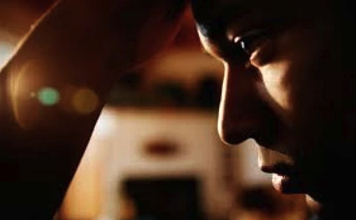Men & Mental Health: A Battle Cry for the Wounded Soldier
Posted: June 25, 2019

I didn’t see it coming…but God did.
I didn’t see the shift in my work from solely treating women to the inclusion of treating men, specifically men of color in my practice. Once in a while a man would call for counseling but typically it was at the insistence of a frustrated wife with an ultimatum, or a court ordered referral for “anger management.” But more often than not it was not a man seeking psychotherapy on his own terms for the hurt he was experiencing. Yet, as communities of color are starting to embrace mental health care as a necessary intervention to help heal ourselves, our loved ones, families, and communities, more men of color are reaching out for additional support.
We already know the many reasons that marginalized and oppressed people have not sought therapy in the past including the stigma attached to seeing a mental health professional, the fear of being perceived as “weak” or “vulnerable,” and the early socialization of males in our culture, such as “boys don’t cry” and “Man Up.”
Recently a male colleague who is also a psychologist and I had a conversation during mental health awareness about men and therapy and why men don’t seek therapy. He shared that he sees quite a few men in his practice. I commented that men have not historically been the population that I treat, with the exception of the eight years I spent treating male youth and young adult men in juvenile corrections (which by the way I liked the work in that setting). My colleague’s response is one that has stayed with me, and if I have to admit it, partially influenced my shift to open accessibility for more men in counseling. He said, “Even men need good therapy.” Urgh! He got me. He’s right. No sooner than my friend/colleague made that statement did my practice receive five calls for men seeking therapy in two weeks.
If you build it, they will come. While the actual quote is “If you build it, he will come” a quote from the movie Field of Dreams, I believe the same for the men who need a safe place to heal their hurts, demons, and emotional wounds. Men need healing spaces where they can develop a relationship with a trusted person whom they will not feel judged or shamed for their experiences.
Here’s what’s real about men and mental health:
*More than 5 million men in the U.S. experience depression.
*Men mask depression with anger. Anger is a more socially acceptable emotion expressed by men than sadness.
*Men have not been shown how to process and talk about emotional experiences which leaves men to suffer in silence.
*Men have not been socialized to talk with others about feelings and emotions and grow up with few role models who show vulnerability safely.
Recently black male celebreties sharing their experiences of mental health are creating new narratives for black males to talk about it (Kanye West, Kid Cudi, Jay Z, Brandon Marshall, Common, Dwayne “The Rock” Johnson, just to name a few.)
I pray that men can begin to cry and express their vulnerability, their fears and emotions in places where it’s respected and validated, and their tears are encouraged.
It’s time for healing. I see you. I’m holding space for men as well.
In your wellness, Dr. Clack

